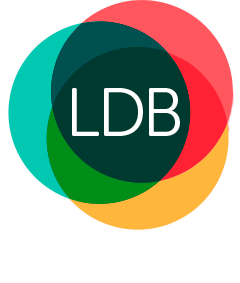Tax tips: Businesses paying contractors to lodge TPAR
August 4, 2020

Several types of businesses that pay contractors or subcontractors may need to complete a Taxable Payments Annual Report (TPAR) by August 28 this year. There are a few new industries that have been included for the first time in the 2020 financial year, so it is imperative as a business owner that you know your obligations.
A TPAR informs the Australian Taxation Office (ATO) about the payments that your business has made to contractors, which includes subcontractors, consultants, and independent contractors. This information will be populated on your contractor’s ATO pre-fill reports and will assist them, and their accountants, in preparing their respective tax returns.
Business owners should note that a contractor may be operating as a sole trader, company, partnership, or trust.
Who needs to lodge a TPAR?
There are a range of industries that pay contractors and may need to lodge a TPAR for the financial year.
These industries include:
- Building and construction services
- Cleaning services (from July 1, 2018)
- Courier services (from July 1, 2018)
- Road freight services (from July 1, 2019)
- IT services (from July 1, 2019)
- Security, investigation or surveillance services (from July 1, 2019)
- Mixed services or businesses that provide one or more of the services listed above.
How TPAR impacts building services
If you run a business primarily in the building and construction industry, then you may need to lodge a TPAR if you have paid contractors during the financial year.
Building and construction services include architectural work, certification, decorating, engineering, landscaping and construction, project management and surveying.
A business is primarily in the building and construction industry when 50 per cent or more of business income is earned or related to building and construction services in the current financial year.
How TPAR impacts IT services
IT services that have made payments to contractors during the financial year will also need to complete a TPAR this year.
The ATO describes IT services as businesses that provide IT expertise such as testing, writing, supporting, or modifying software for clients.
Examples of IT services are computer facilities management, computer hardware consulting, computer programming, and technical support.
How TPAR impacts cleaning services
Businesses providing cleaning services such as interior, exterior or carpet cleaning may have to submit a TPAR if they have paid contractors for those services.
Businesses that clean chimneys, gutters, swimming pools, parks and park facilities are also considered, as well as road sweeping and street cleaning businesses.
If cleaning is only one part of the services you offer, then you only have to lodge a TPAR if your cleaning services make up 10 per cent or more of your GST turnover.
How TPAR affects road freight services
If your road freight business has paid contractors since July 1, 2019 then you may have to lodge a TPAR by August 28 this year.
The ATO classifies road freight services as businesses that transport freight by road or rent trucks with drivers for road freight transportation, as well as road vehicle towing services.
This includes furniture removal services, road freight forwarding services, log haulage services, and taxi truck services.
How TPAR affects security services
Security services are made up of businesses that patrol, protect or guard people, premises, or property.
The ATO also includes investigation and surveillance services as security services.
Security services include security guards, operating security screening equipment, lock smithing, alarm monitoring and response, detective agency service, and more.
What if your business has a mix of services or businesses?
Businesses that offer a mix of services may need to submit a TPAR if they have paid contractors during the financial year and meet certain thresholds.
They will need to work out what percentage of payment are received from services subject to TPAR for that financial year.
You will have to lodge a TPAR if total payments equal 10 per cent of more of your GST turnover or if your business is primarily in the building and construction industry.
The types of mixed businesses that may need to complete a TPAR include florists, franchisees and retailers, as well as building maintenance and event management businesses.
Complete your TPAR with confidence
If you run a business that provides any of the above services and have made a payment to a contractor, then you will need to complete a TPAR for the ATO by August 28.
For many businesses, this will be their first time completing a TPAR.
TPAR reporting can be complex and time-consuming, so you should speak to a financial advisor if you’re unsure about what you need to report.
LDB and its experienced financial and business advisors can help your business with the entire TPAR process, making sure you complete the report correctly and avoid mistakes.
If it’s your first time completing a TPAR or you have questions about your reporting obligations, give us a call on (03) 9875 2900 or send us a message via the contact form below.
